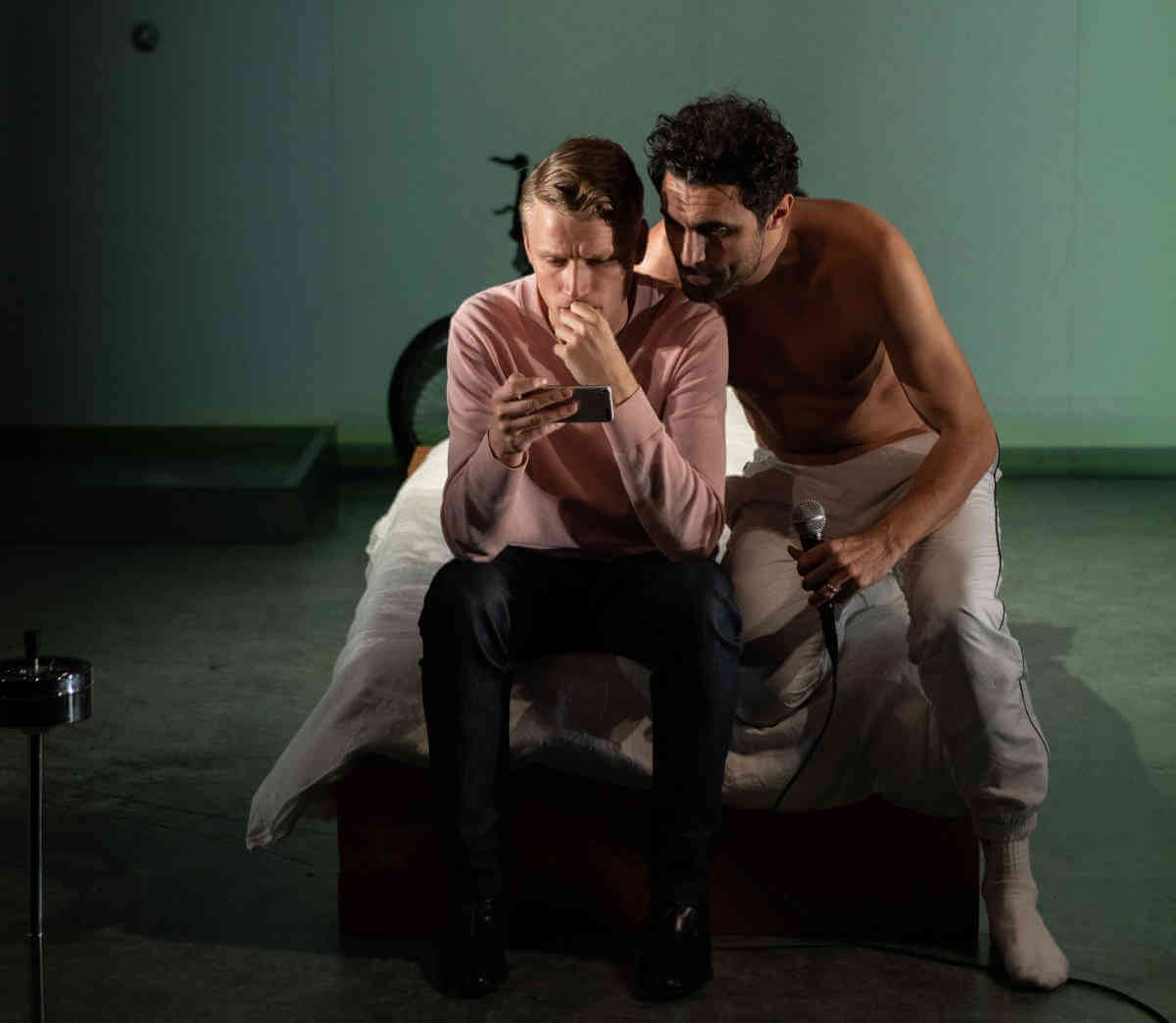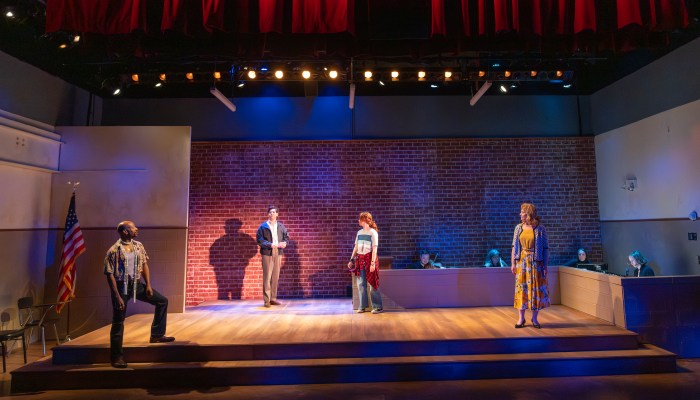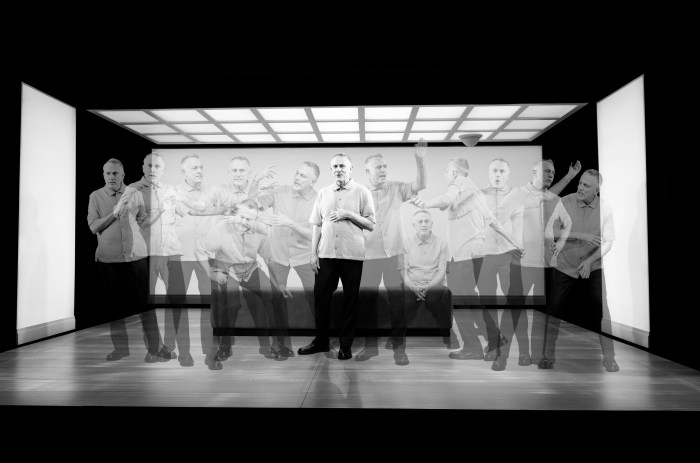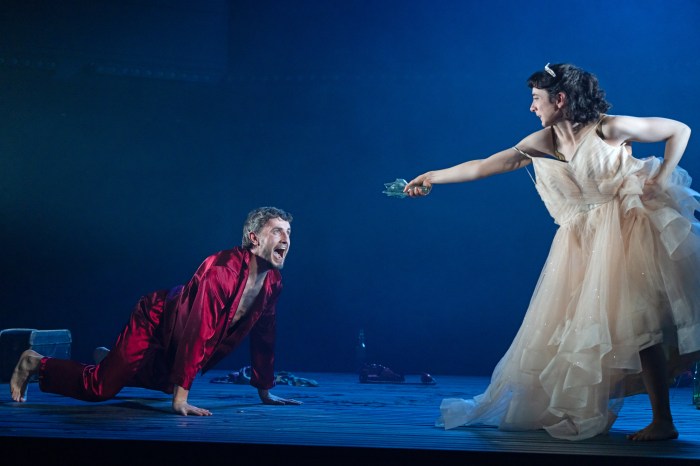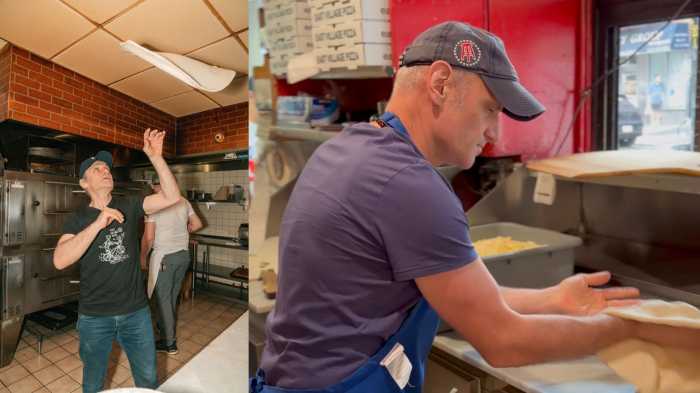When Édouard Louis was barely 20 years old, he met a charming, swarthy young man on a Paris street on a rainy Christmas Eve and took him home. But after an intensely intimate night of sharing secrets and mind-blowing sex, the mood turned hellishly sour. In a fit of remorse and self-loathing, the man violently rapes Édouard at gunpoint, sending him to the emergency room and, later, to the police station. The official report called it “attempted homicide.”
Compelled to share his story, Édouard wrote “History of Violence,” an autobiographical novel piecing together the events in graphic detail. And now Thomas Ostermeier, artistic director of Schaubühne Berlin, has adapted the story for the stage (he also directs), with an assist from Florian Borchmeyer and the author himself.
And while a straightforward account of the events would be gripping enough, this inventive, unflinching take crackles with astonishing theatricality. At its core, the drama is a memory play, where events are seen through a fractured prism of recall by Édouard, his sister Clara, health professionals, and the police.
It is clear from the get-go that Édouard suffers from an acute case of PTSD with attendant OCD. This probing drama makes a strong case for literature and theater as catharsis.

If the play embraces the power of memories and storytelling, it also challenges their veracity. “I no longer recognized my own memories,” Édouard says. “The questions of the police forced me to describe my night with Reda differently than I’d have chosen to.”
Ostermeier employs a number of shrewd devices to intensify the experience while keeping us slightly off balance. Often scenes overlap –– for instance, while we see the young men swig vodka in Édouard’s flat, a smug investigator grills him about the encounter. Characters often record the action with smartphones, zooming in on faces, and the images appear to be projected in black and white on the vast white backdrop. I found myself meticulously comparing what was happening live onstage with the video, and I could swear it didn’t quite synch up.
A lone musician (Thomas Witte) plays percussion and keyboard prominently onstage, lending an eerie soundtrack to the proceedings. From time to time, the characters suddenly bust out some slick dance moves, or a male actor appears in drag, adding touches of comic relief. Oh, and I forgot to mention the dialogue is entirely in German with English supertitles, adding another layer of opacity.
Not that this piece is only about violence and its aftermath. It also lays bare disturbing themes of society’s homophobia and racial bigotry. The health professionals seem to judge Édouard for coming in with a bleeding rectum, or for his request for post-exposure prophylaxis against HIV. The police insist on labeling the assailant a “fucking Arab” even though he was Kabyle, a very different people in Algeria. These prejudices eclipse any genuine concern for Édouard’s well-being.

As the shattered Édouard, Laurenz Laufenberg, who bears a strong resemblance to the real-life author, possesses a valiant quality that belies Édouard’s victimhood. His portrayal uncovers a deep vein of ambivalence toward his would-be murderer. Renato Schuch is perfectly cast as the hunky, volatile Reda, seamlessly morphing from enchanting heartthrob to psychotic villain.
Christoph Gawenda and Alina Stiegler delve into the multiple secondary roles with gusto. Stiegler stands out as the opinionated, cigarette-addicted Clara who tries to rewrite history by claiming the family was always loving and supportive of Édouard’s sexual orientation. Édouard begs to differ.
To be sure, “History of Violence” exudes an arresting, bruising honesty that’s not easy to watch. Between the harsh subject matter, raw portrayals (there is full nudity and simulated sex and violence), challenging framework, and two-hour intermission-less running time (absolutely no re-entry allowed), the viewer is expected to work hard. On the night I attended, a few folks bolted mid-performance, clomping down the riser steps and walking in front of the stage, visibly distraught, for all to see.
As harrowing as this drama might be for the theatergoer, it’s just a taste of the atrocities that Édouard endured. And is surely still grappling with today.

HISTORY OF VIOLENCE | Schaubühne Berlin | St. Ann’s Warehouse, 45 Water St. at the Brooklyn Bridge | Nov. 19-23, 26 & 27, 29 & 30 at 7:30 pm; Nov. 23 & 30 and Dec. 1 at 2 p.m.; Nov. 24 at 5 p.m. | $36-$71 at stannswarehouse.org | Two hrs., no intermission | Performed in German, with English supertitles | Through the run, St. Ann’s hosts the “Queer as German Folk” exhibition surveying the past 50 years of LGBTQ activism in Germany

